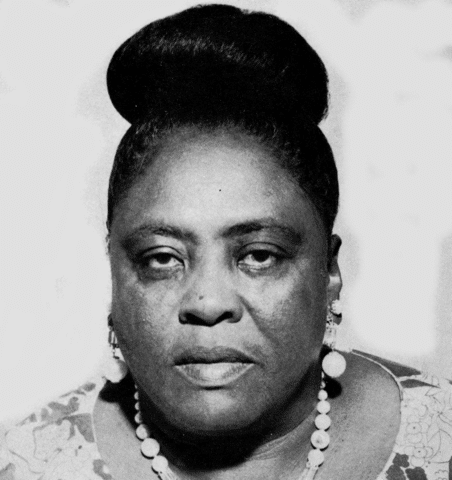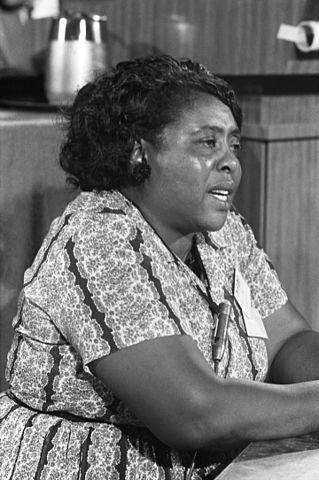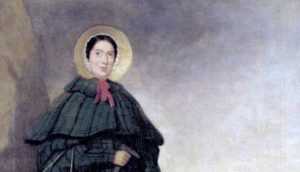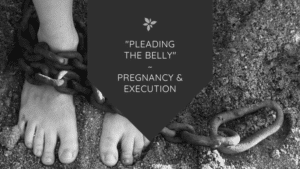Fannie Lou Hamer was a 20th century civil rights activist in the United States. She was a devout Christian who viewed the African American struggle for equal rights as a spiritual struggle, and became known for singing hymns. A motherly figure with a straight-forward manner, she was a powerful public speaker who fought tirelessly for the rights of African Americans to vote safely.
African Americans and the Right to Vote

Throughout much of the 20th century, the American South was a very dangerous time for African Americans. They faced hardships and dangers such as institutionalized racism, harassment, and lynching.
Though it was technically legal for black people to vote, it was made extremely difficult by institutionalized racism, such as fees imposed on poor black voters and impossible paperwork requirements.
Those who dared to register despite the difficulties were threatened with violence, and often beaten or even killed for trying to vote.
Becoming a Civil Rights Activist
Born in 1917 in Mississippi, Fannie Lou Hamer was the youngest of her 19 siblings. She grew up picking cotton with her family. She didn’t get involved in activism in her early life, but later.
Fannie Lou got married and raised two adopted girls on the plantation in Sunflower County, Mississippi where she grew up. (Later, one of her girls died of internal bleeding because the hospital wouldn’t admit her because of her mother’s activism.)

She became involved in activism later in her life in her 40s, after attending conferences of the Regional Council of Negro Leadership (RCNL). The speakers urged African Americans to exercise their right to vote.
Voter registration was extremely dangerous for black people in the United States, especially in the south.
Knowing she risked her life, Fannie decided to travel with a group to register to vote. Everyone on the bus was terrified of the dangers they faced, so Fannie helped to calm their fears by singing hymns such as “Go Tell It on the Mountain” and “This Little Light of Mine.”
She became well-known for her singing, and was recruited by the Student Nonviolent Coordinating Committee (SNCC) to continue to travel with groups registering to vote.
On one trip, the group was arrested on false charges on the way back, and they were all thrown in jail and beaten. Fannie needed a whole month to recover. She was fired from her job when she got back. Her boss tried to force her to withdraw her voter registration but she refused:
I didn’t try to register for you, I tried to register for myself.
Despite the physical and emotional toll of that horrific event, Fannie courageously continued her work organizing voter registration drives.
Related Reading: Ella Baker, civil & human rights activist
Fannie Lou Hamer’s Legacy
Fannie Lou Hamer had a huge effect on the civil rights movement and getting black people in the South registered to vote. She was instrumental in many different groups including the SNCC, the Mississippi Freedom Democratic Party, Head Start programs, and Martin Luther King, Jr.’s Poor People’s Campaign.
She also ran for Congress in 1964 and 1965, and spoke out against the Vietnam War in 1968.
She was honored for her work with a Honorary Degree of Doctor of Humanities from Tougaloo College and Shaw University, and also received honorary degrees from Columbia College Chicago and Howard University.
She was the recipient of many awards including the National Sojourner Truth Meritorious Service Award, and was inducted into the National Women’s Hall of Fame.
Fannie Lou Hamer Quotes
“We didn’t come all the way up here to compromise for no more than we’d gotten here. We didn’t come all this way for no two seats when all of us is tired.”
“I always said if I lived to get grown and had a chance, I was going to try to get something for my mother and I was going to do something for the black man of the South if it would cost my life; I was determined to see that things were changed.”
“I guess if I’d had any sense, I’d have been a little scared [to register to vote] – but what was the point of being scared? The only thing they could do was kill me, and it kinda seemed like they’d been trying to do that a little bit at a time since I could remember.”
All of this is on account we want to register, to become first-class citizens, and if the Freedom Democratic Party is not seated now, I question America. Is this America, the land of the free and the home of the brave where we have to sleep with our telephones off the hooks because our lives be threatened daily because we want to live as decent human beings – in America?
Next, read about Ida B. Wells: Fierce Anti-Lynching Activist and Abolitionist, or Ella Baker, civil & human rights activist!
Keri is a blogger and digital marketing professional who founded Amazing Women In History in 2011.





So good to see Fannie Lou Hammer and her courage remembered! Truly inspirational.
Thanks so much for stopping by, Rosemary! Fannie Lou Hamer should definitely be more well-known for all her efforts and bravery!